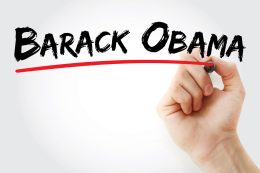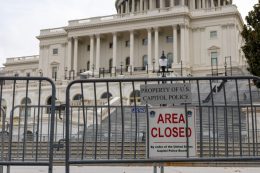An 82-year-old veteran has been fighting for 13 years to get his plane back.
What the government did to him should terrify every American.
And this Alaska pilot’s last stand against the government could blow the lid off one outrageous scheme.
Kenneth Jouppi spent his life serving others — first as an Air Force veteran, then as a bush pilot flying supplies and passengers across Alaska’s remote wilderness.¹
On April 3, 2012, the 82-year-old was preparing to fly a routine trip from Fairbanks to Beaver, a tiny village 110 miles north where roads don’t reach.²
His passenger asked him to transport groceries for the trip.
Hidden in those groceries were three cases of beer — two Budweiser and one Bud Light — intended as a gift for her husband, who worked as the local postmaster.³
Jouppi had no idea the beer was there.
Alaska troopers seized a $95,000 plane over beer
Before Jouppi could take off, Alaska State Troopers searched the plane and found the alcohol.⁴
Beaver voted in 2004 to ban alcohol importation.⁵
The troopers charged Jouppi with knowingly transporting alcohol into a dry village, even though he insisted he never knew about the beer.
He was convicted, fined $1,500, and sentenced to three days in jail — the minimum penalty required by law.⁶
But prosecutors didn’t stop there.
They moved to seize his entire airplane, a 1969 Cessna U206D valued at approximately $95,000.⁷
Under Alaska Statute 04.16.220(a)(3)(C), vehicles used to transport alcohol illegally can be forfeited to the state — even when the owner had no knowledge of the contraband.⁸
Lower courts initially agreed that confiscating a $95,000 airplane over three cases of beer was excessive under the Eighth Amendment’s protection against excessive fines.⁹
But in 2024, the Alaska Supreme Court reversed that decision.
Justice Jude Pate wrote that "forfeiture of the airplane constituted a fine within the meaning of the Excessive Fines Clause" but ruled it was not "grossly disproportional to the gravity of the harm caused by the offense."¹⁰
The court claimed that even a six-pack of beer causes "grave societal harm" in rural Alaska due to alcohol abuse problems.¹¹
Government agencies depend on seized property as revenue
This isn’t about fighting crime.
It’s about funding government operations.
The Supreme Court has acknowledged that enforcement agencies "increasingly depend heavily on fines and fees as a source of general revenue."¹²
In 43 states, police and prosecutors keep anywhere from half to all the proceeds from civil asset forfeiture — creating a direct financial incentive to seize property.¹³
Under civil forfeiture laws, the government can take your cash, car, home, or business without ever charging you with a crime, let alone convicting you.¹⁴
The burden of proof falls on the owner to prove their innocence — turning the fundamental American principle of "innocent until proven guilty" upside down.¹⁵
Alaska isn’t alone in this scheme.
In 2017, state legislators held hearings after the Alaska Outdoor Council warned that hunters were having aircraft, weapons, boats, and ATVs seized before cases even made it through the court system.¹⁶
One Alaska representative noted that someone accused of a crime with a $5,000 penalty could have a $500,000 commercial fishing vessel seized if they failed to pay the fine.¹⁷
Detroit’s asset forfeiture scheme was ruled unconstitutional in 2023 after residents were forced to wait months or even years for hearings — one plaintiff waited two full years.¹⁸
The Supreme Court tried to address forfeiture abuse in May 2024 with Culley v. Marshall, but the 6-3 decision only required "timely" hearings — it didn’t stop the government from seizing property in the first place.¹⁹
Justice Neil Gorsuch, joined by Justice Clarence Thomas, wrote in a concurring opinion that the Court needs to examine "whether and to what extent contemporary civil forfeiture practices can be squared with the Constitution’s promise of due process."²⁰
The Institute for Justice takes the fight to the Supreme Court
With help from the Institute for Justice, Jouppi filed a petition with the U.S. Supreme Court in June 2025.²¹
The libertarian-leaning nonprofit has won 11 of 13 cases before the Supreme Court since 2002, including the landmark Timbs v. Indiana decision in 2019 that applied the Eighth Amendment’s Excessive Fines Clause to the states.²²
"This case isn’t just about me or my airplane anymore," Jouppi explained. "I’m in my 80s now, and I’ve been fighting this for over a decade because I see it as my duty to ensure that the Bill of Rights actually means something in protecting against government overreach."²³
The Institute for Justice argues that Jouppi’s case represents a fundamental threat to private property rights across America.
"In an era where enforcement agencies increasingly depend heavily on fines and fees as a source of general revenue, it’s critical that the Court invigorate the Bill of Rights’ Excessive Fines Clause in a way that better secures protections for ordinary people nationwide," a spokesperson said.²⁴
The three cases of beer Jouppi unknowingly transported were worth roughly $12 to $16 at Alaska prices.²⁵
That means the fine was approximately 7,000 times the value of the contraband.²⁶
Jouppi paid his $1,500 fine and served his three days in jail.
But 13 years later, he’s still fighting to get his airplane back from a government that treats property owners like criminals and views their assets as revenue streams.
The Supreme Court now has a chance to draw a line on how far the government can go in punishing Americans for crimes they didn’t commit — or in Jouppi’s case, didn’t even know about.
¹ Kenneth Jouppi/Institute for Justice
² "Alaska pilot seeks SCOTUS relief in case in which three beer cases led to forfeiture of $95K plane," Fox News, October 22, 2025.
³ Ibid.
⁴ Ibid.
⁵ Ibid.
⁶ Ibid.
⁷ Ibid.
⁸ Ibid.
⁹ Ibid.
¹⁰ "Alaska’s seizure of a bootlegger’s plane was legal, Supreme Court says," Alaska Beacon, April 23, 2025.
¹¹ Ibid.
¹² "A Case over a Case," Foundation for Economic Education.
¹³ "Ending Civil Forfeiture," Institute for Justice.
¹⁴ Ibid.
¹⁵ Ibid.
¹⁶ "Alaska asset forfeiture, seizure laws draw fire from state lawmaker," Alaska News Source, January 26, 2017.
¹⁷ Ibid.
¹⁸ "Supreme Court rules no due process right to preliminary hearings in civil asset forfeiture cases," Reason, May 9, 2024.
¹⁹ "22-585 Culley v. Marshall," U.S. Supreme Court, May 9, 2024.
²⁰ Ibid.
²¹ Fox News, op. cit.
²² "The Institute for Justice," Institute for Justice website.
²³ "A Case over a Case," Foundation for Economic Education.
²⁴ Fox News, op. cit.
²⁵ "Asset Forfeiture ABUSE: Alaska Supreme Court Upholds State’s Seizure of $95K Plane Over Six-Pack of Beer," Twitchy, September 5, 2025.
²⁶ Ibid.
















